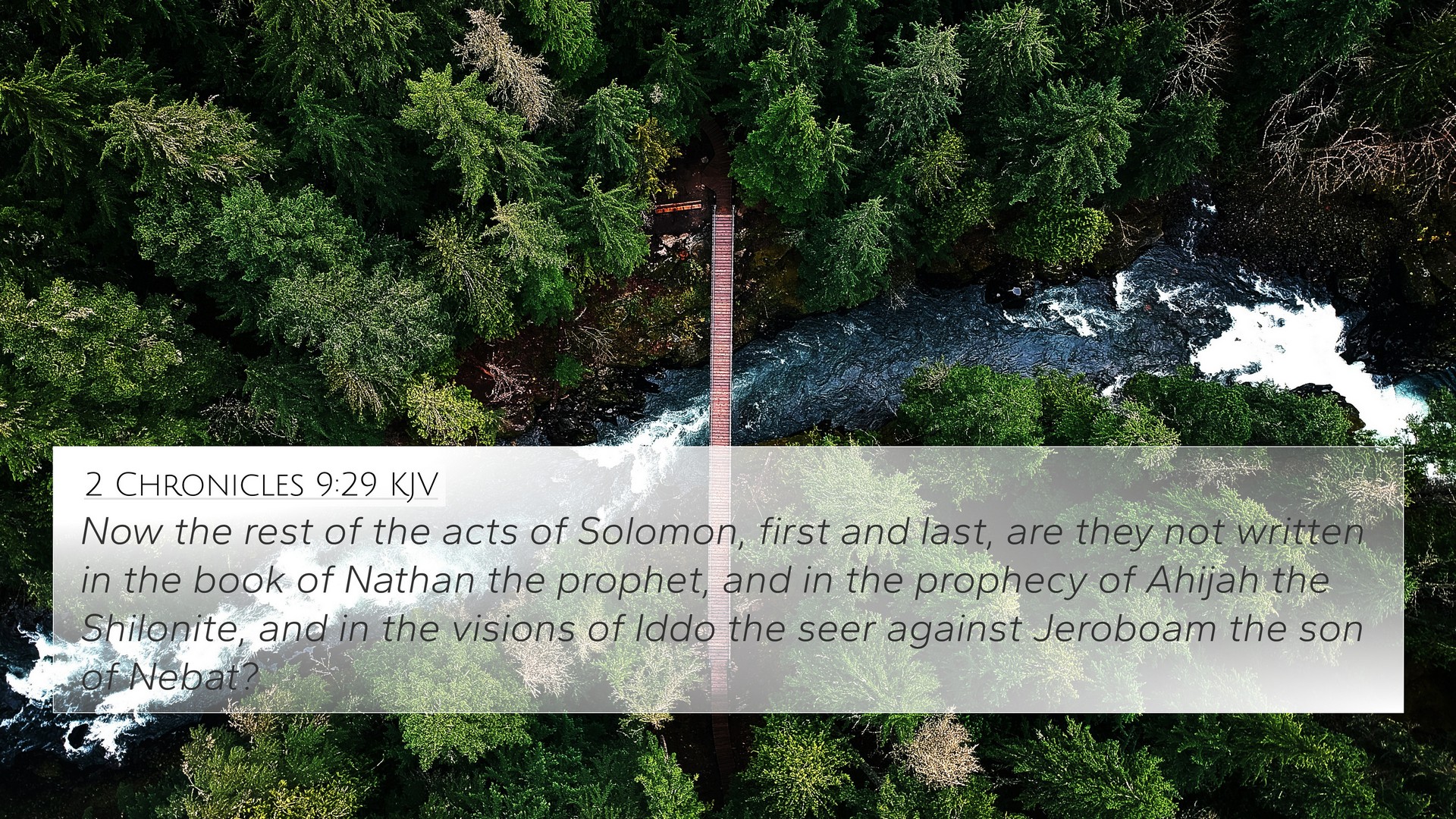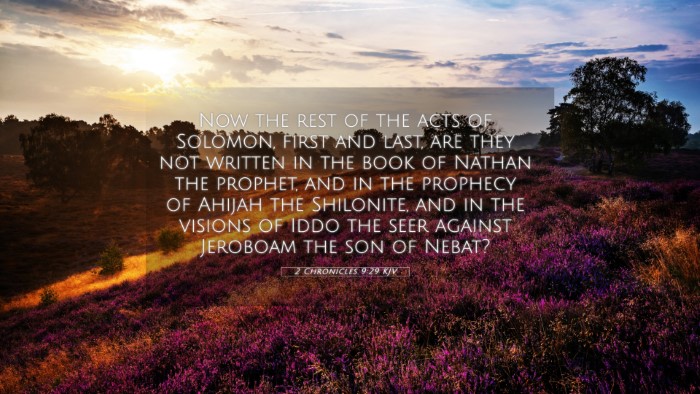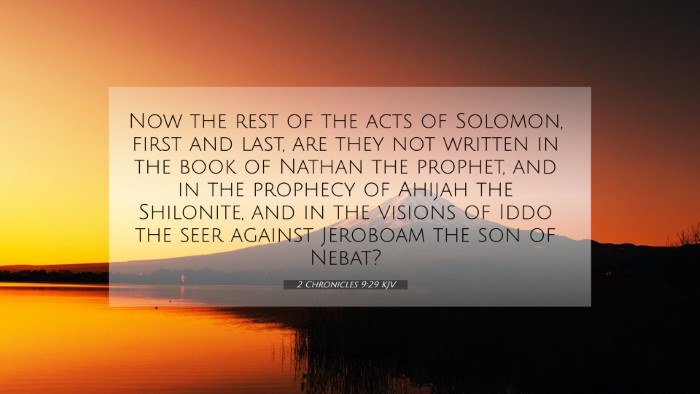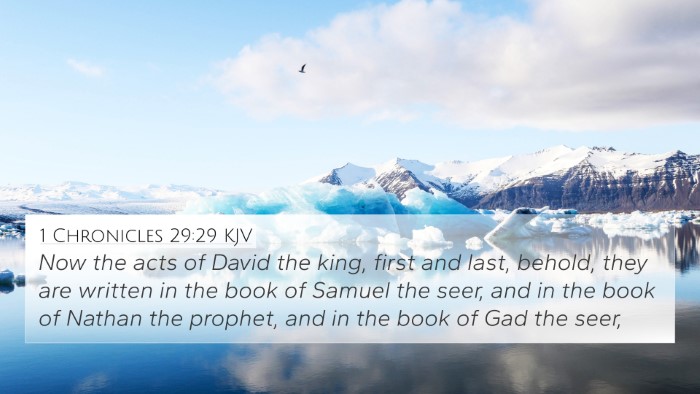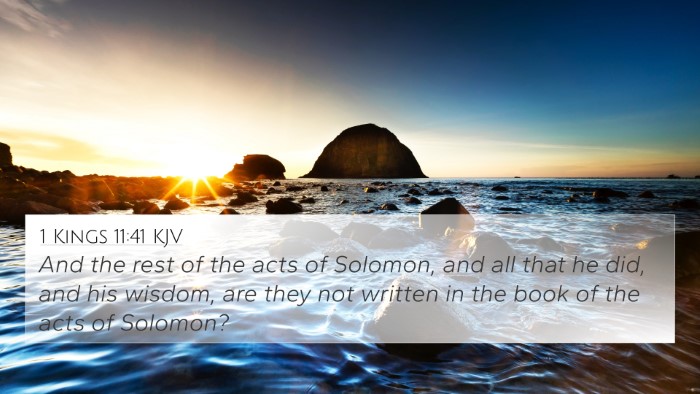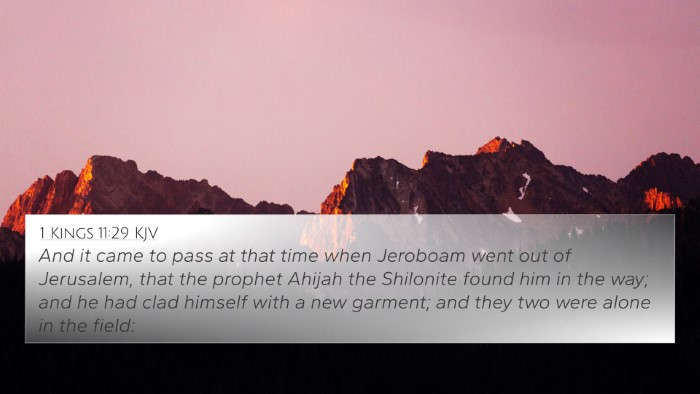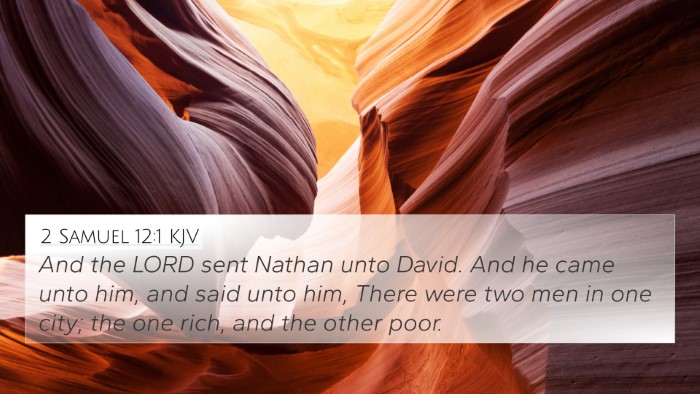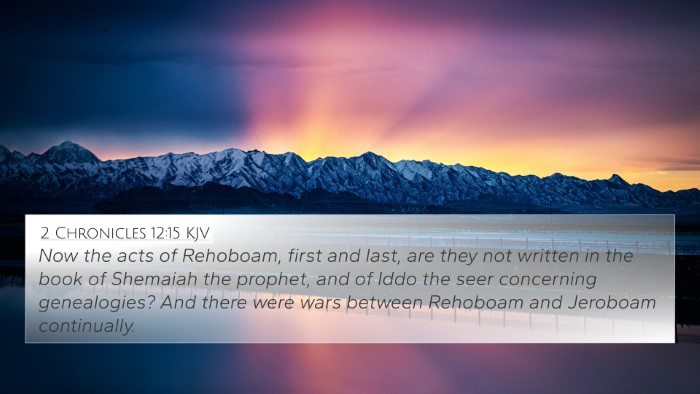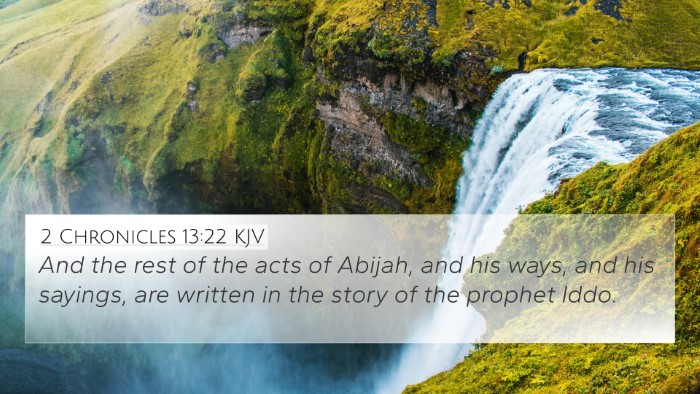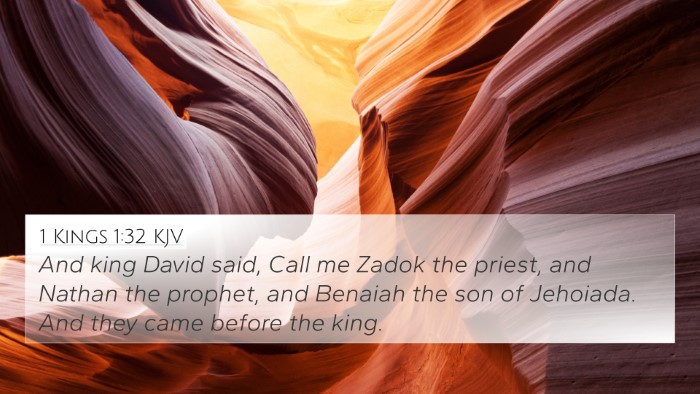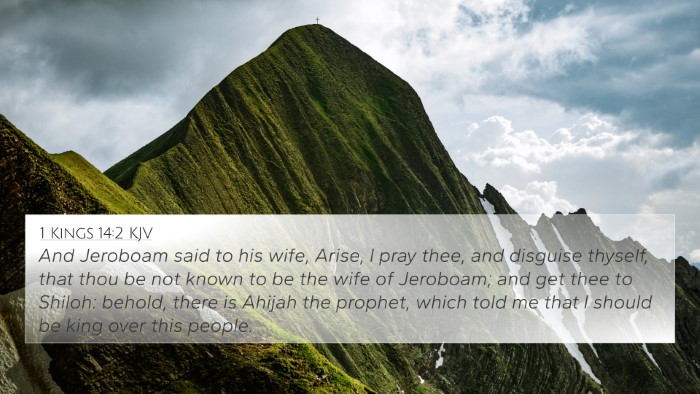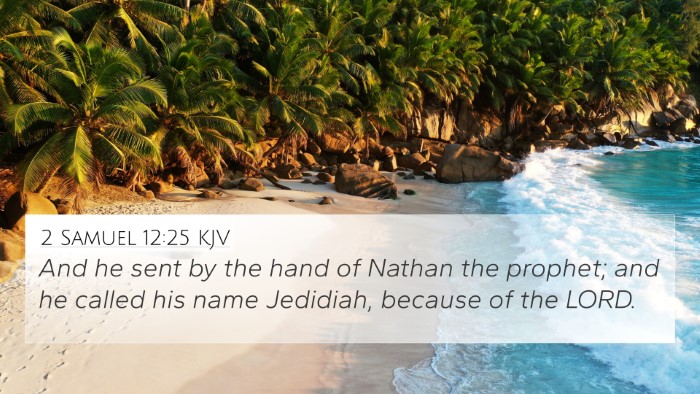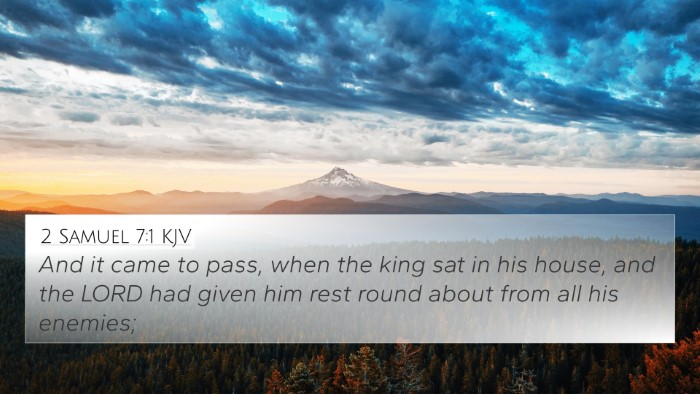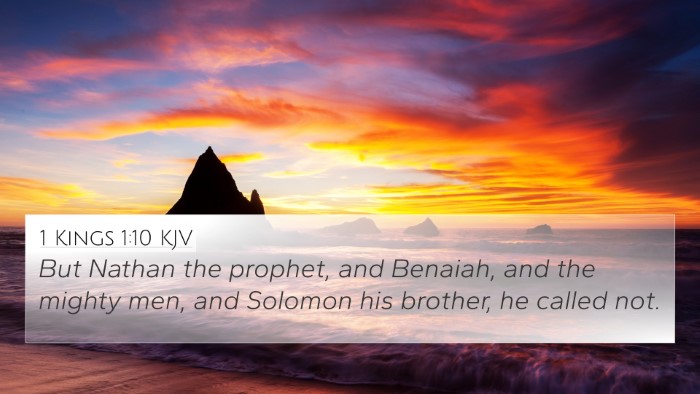Understanding 2 Chronicles 9:29 - A Comprehensive Commentary
2 Chronicles 9:29 states:
"Now the rest of the acts of Solomon, first and last, are they not written in the book of Nathan the prophet, and in the prophecy of Ahijah the Shilonite, and in the visions of Iddo the seer against Jeroboam the son of Nebat?"
Summary of the Verse
This verse serves as a closing remark concerning the reign of King Solomon, indicating that his deeds are recorded in various prophetic texts. The mention of Nathan, Ahijah, and Iddo emphasizes the importance of prophetic literature in understanding Solomon's legacy and the broader historical narrative.
Insights from Public Domain Commentaries
- Matthew Henry:
Henry emphasizes that this verse illustrates the importance of prophetic witnesses in Israel's history. Solomon's deeds are not just in the annals of time but are validated by recognized prophets, which lends authority and historical significance to his reign.
- Albert Barnes:
Barnes highlights the books referenced, suggesting that they contain critical insights about Solomon's wisdom and folly. He also infers that the prophetic writings not only capture the visible acts of Solomon but also the spiritual implications of his reign.
- Adam Clarke:
Clarke notes the significance of each mentioned prophet, associating their messages to the context of Solomon's reign and the eventual division of the kingdom. He points out how these writings serve to connect the dots between prophecy and the unfolding historical narrative.
Bible Verse Cross-References
2 Chronicles 9:29 can be cross-referenced with several key scriptures, showcasing thematic and narrative connections across the Bible:
- 1 Kings 11:41-43: This passage recounts the deeds of Solomon, echoing the contents of 2 Chronicles 9:29 in describing the end of Solomon's reign.
- 2 Samuel 7:12-16: This prophecy concerning David connects with Solomon as his son, framing the context for understanding the Davidic lineage.
- 1 Chronicles 28:11-19: Here, David conveys instructions to Solomon, connecting the prophetic insights with familial expectations.
- Luke 11:31: Jesus refers to Solomon’s wisdom, underlining his significance in biblical history and the echoes of his legacy.
- Matthew 12:42: This verse reiterates the acknowledgment of Solomon’s wisdom in the New Testament, indicating a lasting impact.
- Zechariah 1:1-6: The prophetic writings mentioned relate back to the periods of Israel's monarchy, offering insights into God’s dealings with Israel.
- Romans 15:4: This verse notes how the Scriptures, including accounts like that of Solomon, provide hope and endurance, supporting their continued relevance.
Thematic Bible Verse Connections
The overarching themes in 2 Chronicles 9:29 encompass wisdom, prophecy, and the legacy of leadership in Israel. These components are interconnected:
- Wisdom of Solomon: The legacy of Solomon’s wisdom is reflected throughout various scriptures, such as Proverbs and Ecclesiastes.
- Prophecy: The prophetic insights indicated here reveal God’s continuing revelation through chosen messengers, extending the narrative beyond Solomon.
- Historical Significance: Solomon's reign serves as a pivotal moment in Israel's history, preparing the way for both the division of the kingdom and its implications.
Connecting the Old and New Testament
The connection between Solomon's reign and New Testament teachings can be seen in the ways Jesus utilizes Solomon's example to teach about wisdom and divine authority. This highlights the continuity within the Scripture, affirming the idea of Inter-Biblical dialogue.
Conclusion
In exploring 2 Chronicles 9:29, one uncovers profound insights into the role of prophetic literature in shaping the understanding of Israel's history and God's covenantal promises. Utilizing tools for Bible cross-referencing and a careful comparative Bible verse analysis, one can enrich their study and appreciation of the interconnectedness found within the Scriptures.
Further Resources
- Consider using a Bible concordance to explore more cross-references.
- Engaging in cross-reference Bible study methods can enhance understanding.
- Utilizing Bible reference resources can assist in uncovering deeper thematic connections.
